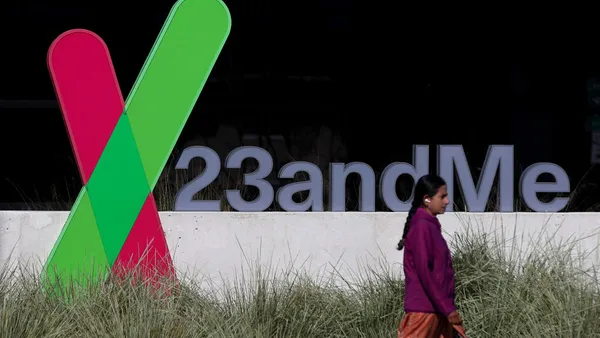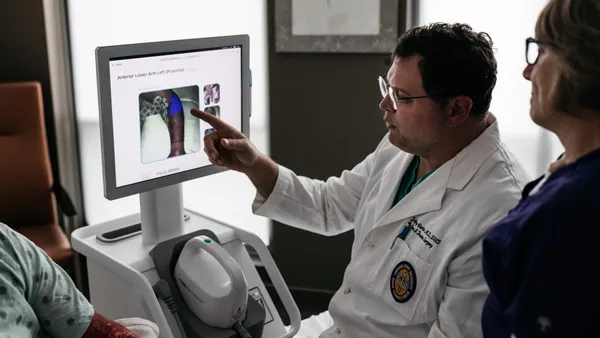Dive Brief:
- The Department of Justice on Tuesday announced charges against the owner of two Pittsburgh-area genetic testing laboratories for an alleged conspiracy to pay and receive kickbacks.
- Ravitej Reddy, 52, and partners are accused of submitting more than $127 million in genetic testing claims to Medicare in three related billing fraud schemes between May 2018 and April.
- Reddy participated in the alleged conspiracies while owner of Personalized Genetics, doing business as Personalized Genomics in Pittsburgh and Med Health Services Management in Monroeville, Pennsylvania.
Dive Insight:
The charges follow on the heels of a DOJ crackdown in September alleging 35 people associated with multiple cancer genetic testing laboratories and telemedicine businesses participated in a scheme to refer seniors for medically unnecessary tests costing Medicare a total of $2.1 billion. It also follows a warning in June from the HHS Office of Inspector General that an ongoing scam targeting Medicare beneficiaries was offering free genetic tests to gain personal data from people for the purpose of identity theft or fraudulent billing.
In the latest case, the DOJ said the fraudulent operation was sophisticated and nationwide in scope, involving consultants, marketers and the operator of a telemedicine business in addition to the defendant.
At the heart of the alleged fraud was the billing of Medicare for cancer genomic testing (CGx), in which DNA sequencing is used to find genetic mutations that could indicate a higher risk of developing certain cancers, and pharmacogenetic testing (PGx) that detects genetic variations affecting the metabolism of medications to help determine their effectiveness in patients.
The co-conspirators obtained thousands of test samples and prescriptions from Medicare beneficiaries to bill the agency for CGx and PGx testing submitted to Reddy's laboratories. The marketers targeted beneficiaries to submit specimens via cheek swab kits sent to their homes or provided at "health fairs" held across the country, and then received percentage-based kickbacks depending on Medicare reimbursement levels, the DOJ said.
In a second scheme, a Florida-based telemedicine company allegedly received kickbacks in exchange for obtaining CGx and PGx prescriptions from physicians hired to review Medicare beneficiaries' medical histories, but the physicians did not conduct a proper telemedicine visit, were not treating the patients for cancer and were not qualified to interpret the test results.
The scam also involved billing the laboratories in Medicare coverage areas offering the highest reimbursement rates, even though those labs did not have validated equipment to conduct CGx testing and had to send samples to a reference laboratory in a less lucrative area, the DOJ said.
Reddy's laboratories submitted Medicare claims for CGx and PGx testing that regularly exceeded $12,000 per beneficiary and totaled more than $127 million, with reimbursements of about $60 million, between May 2018 and April, according to the DOJ.
Reddy is charged with two counts of conspiracy to pay and receive kickbacks, one count of conspiracy to pay kickbacks and one count of offering and paying kickbacks. Reddy allegedly paid percentage-based kickbacks to a separate marketing firm to acquire PGx and other testing samples between October 2017 and April.
Reddy faces a maximum sentence of five years in prison and a fine of $250,000 for each of the conspiracy counts. For the kickback charge, he faces a maximum sentence of 10 years in prison and a $250,000 fine.
Congress has also been looking into genetic testing fraud. In August, a group of senators wrote to HHS asking for more information on scams proliferating across the country.













